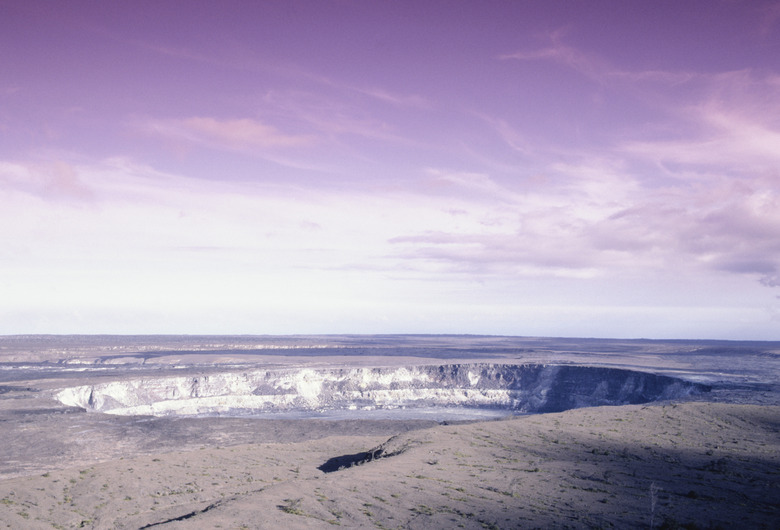The Effect Of Meteorites On The Earth's Ecosystems
Every day, rocks plummet from space into Earth's atmosphere, so small that they combust and burn away before they can collide with the surface. Occasionally, though, a rock large enough to survive the descent strikes the planet, earning the name "meteorite." Research suggests a meteorite greater than 1 kilometer (0.62 miles) in diameter could alter Earth's ecosystems through its effects on temperature, photosynthesis and the composition of air and water.
“Winter”
"Winter"
The darkening of Earth's sky would occur soon after the collision of a meteorite of 1 kilometer in diameter with the ground. The impact would scatter rocks and dust into the sky. This debris, called ejecta, would linger above Earth's surface as a dense cloud cover. At the same time, heat from the impact would likely spark wildfires. Smoke from the fires would join the ejecta and block out sunlight, creating an artificial winter.
Photosynthesis
Photosynthesis
While a rapid drop in global temperature would directly affect the survival rates of organisms with low tolerance for the cold, the artificial winter resulting from a large impact would have indirect effects even on organisms that could withstand it. Without sunlight, plants and algae would be unable to conduct photosynthesis and would begin to die out. With less food available, herbivore populations would decline, and similar results would follow throughout the food web.
The Atmosphere
The Atmosphere
After a large meteorite's impact, Earth's atmosphere would contain new substances in addition to the smoke and ejecta. The jolt of energy from the collision would be enough to instigate chemical reactions between atmospheric nitrogen and oxygen, producing nitrous oxide. Nitrous oxide's interaction with water in our air would result in nitric acid, which could acidify the planet's precipitation and create environments harsh enough to cause life-threatening deformities in young, developing plants and animals.
Water
Water
If a meteorite landed instead in an ocean, widespread flooding would result from the giant waves, or tsunami, emanating from the impact site. Though this would immediately cause a loss of life, researchers Philip A. Bland and Charles S. Cockell, writing in the journal "Trends in Ecology and Evolution," offered a positive take on the flooding, suggesting that it could make nutrients from the rich, deep sea available to surviving aquatic organisms above.
Evolution
Evolution
Dinosaurs became extinct in the aftermath of an impact 65 million years ago; people would likely fare no better today. But science provides hope for the continuation of life on Earth, if in different forms. Bland and Cockell's research, reflecting thoughts that currently link astronomy and biology, posits that meteorites long ago carried chemical compounds essential to life to Earth's surface. This suggests that life could again develop and adapt on a changed Earth.
Cite This Article
MLA
Johnson, Sheila. "The Effect Of Meteorites On The Earth's Ecosystems" sciencing.com, https://www.sciencing.com/effect-meteorites-earths-ecosystems-2852/. 24 April 2017.
APA
Johnson, Sheila. (2017, April 24). The Effect Of Meteorites On The Earth's Ecosystems. sciencing.com. Retrieved from https://www.sciencing.com/effect-meteorites-earths-ecosystems-2852/
Chicago
Johnson, Sheila. The Effect Of Meteorites On The Earth's Ecosystems last modified August 30, 2022. https://www.sciencing.com/effect-meteorites-earths-ecosystems-2852/


